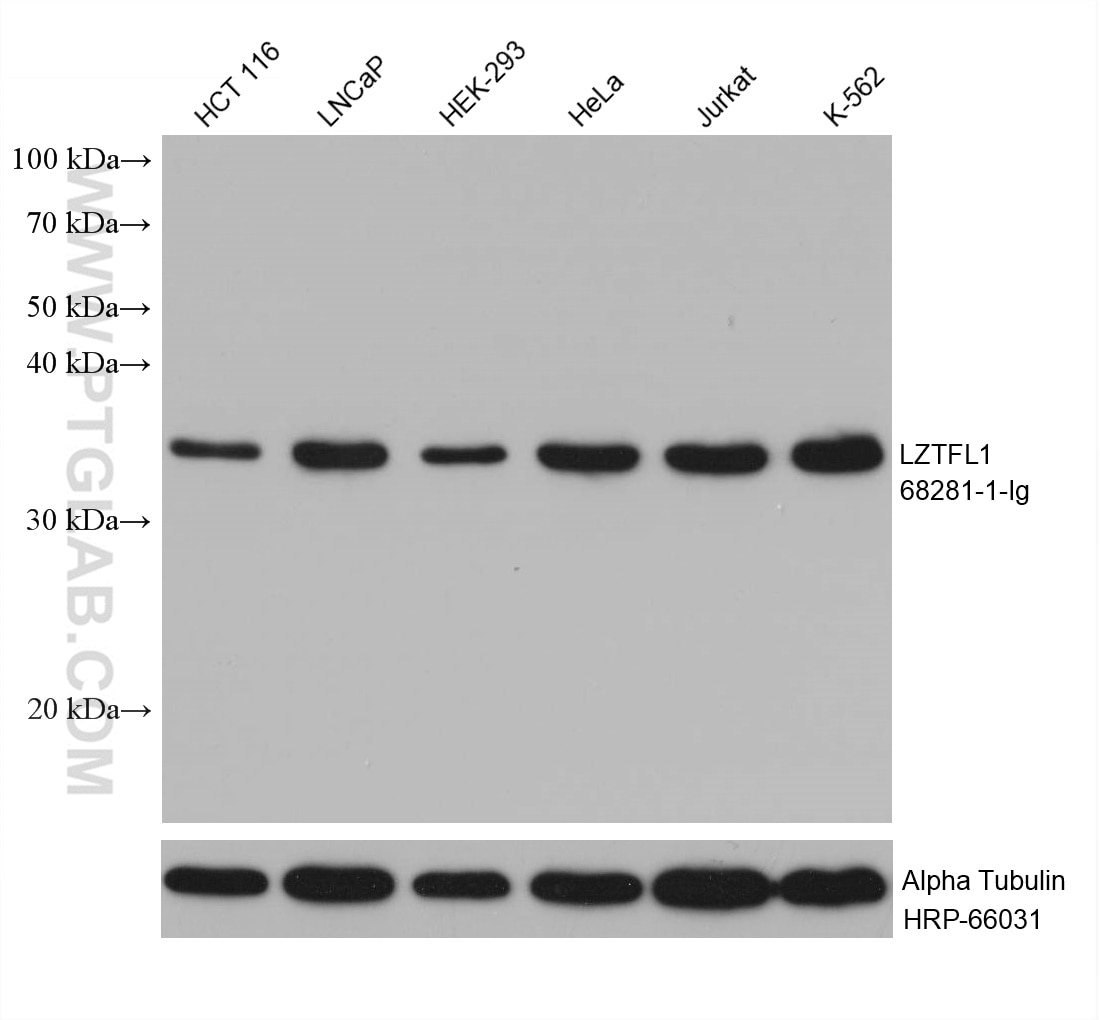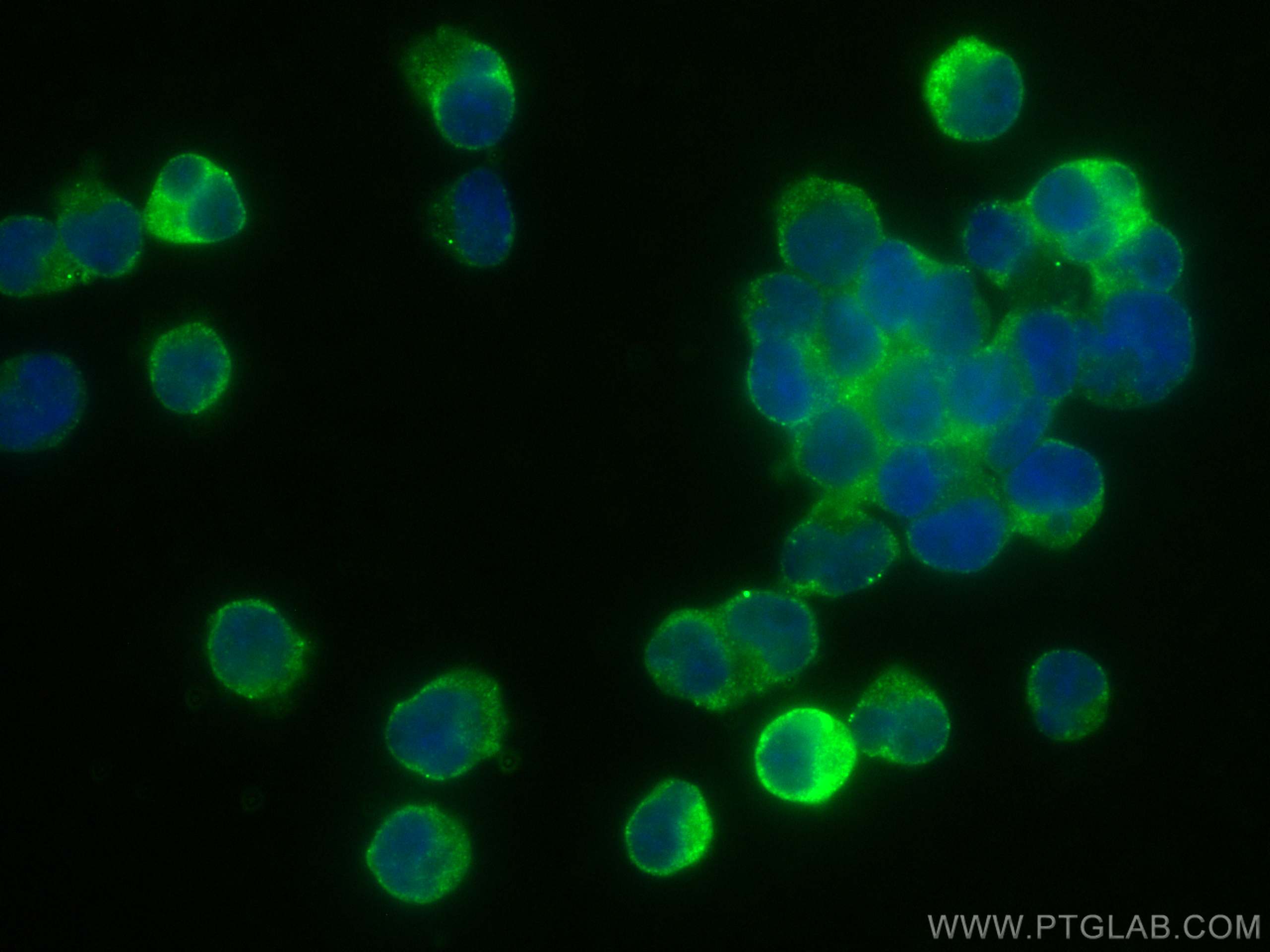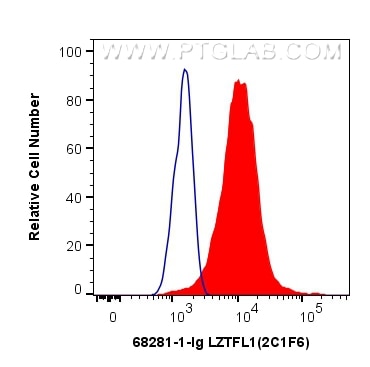Tested Applications
| Positive WB detected in | HCT 116 cells, LNCaP cells, HEK-293 cells, HeLa cells, Jurkat cells, K-562 cells |
| Positive IF/ICC detected in | Jurkat cells |
| Positive FC (Intra) detected in | Jurkat cells |
Recommended dilution
| Application | Dilution |
|---|---|
| Western Blot (WB) | WB : 1:5000-1:50000 |
| Immunofluorescence (IF)/ICC | IF/ICC : 1:400-1:1600 |
| Flow Cytometry (FC) (INTRA) | FC (INTRA) : 0.40 ug per 10^6 cells in a 100 µl suspension |
| It is recommended that this reagent should be titrated in each testing system to obtain optimal results. | |
| Sample-dependent, Check data in validation data gallery. | |
Product Information
68281-1-Ig targets LZTFL1 in WB, IF/ICC, FC (Intra), ELISA applications and shows reactivity with Human samples.
| Tested Reactivity | Human |
| Host / Isotype | Mouse / IgG2a |
| Class | Monoclonal |
| Type | Antibody |
| Immunogen | LZTFL1 fusion protein Ag10733 Predict reactive species |
| Full Name | leucine zipper transcription factor-like 1 |
| Calculated Molecular Weight | 299 aa, 35 kDa |
| Observed Molecular Weight | 35 kDa |
| GenBank Accession Number | BC025988 |
| Gene Symbol | LZTFL1 |
| Gene ID (NCBI) | 54585 |
| RRID | AB_2935362 |
| Conjugate | Unconjugated |
| Form | Liquid |
| Purification Method | Protein A purification |
| UNIPROT ID | Q9NQ48 |
| Storage Buffer | PBS with 0.02% sodium azide and 50% glycerol , pH 7.3 |
| Storage Conditions | Store at -20°C. Stable for one year after shipment. Aliquoting is unnecessary for -20oC storage. 20ul sizes contain 0.1% BSA. |
Background Information
LZTFL1 belongs to the LZTFL1 family. It is an important regulator of BBSome ciliary trafficking and hedgehog signaling. LZTFL1 regulates Ciliary Trafficking of the BBSome and Smoothened.(PMID:22072986)
Protocols
| Product Specific Protocols | |
|---|---|
| WB protocol for LZTFL1 antibody 68281-1-Ig | Download protocol |
| IF protocol for LZTFL1 antibody 68281-1-Ig | Download protocol |
| Standard Protocols | |
|---|---|
| Click here to view our Standard Protocols |







